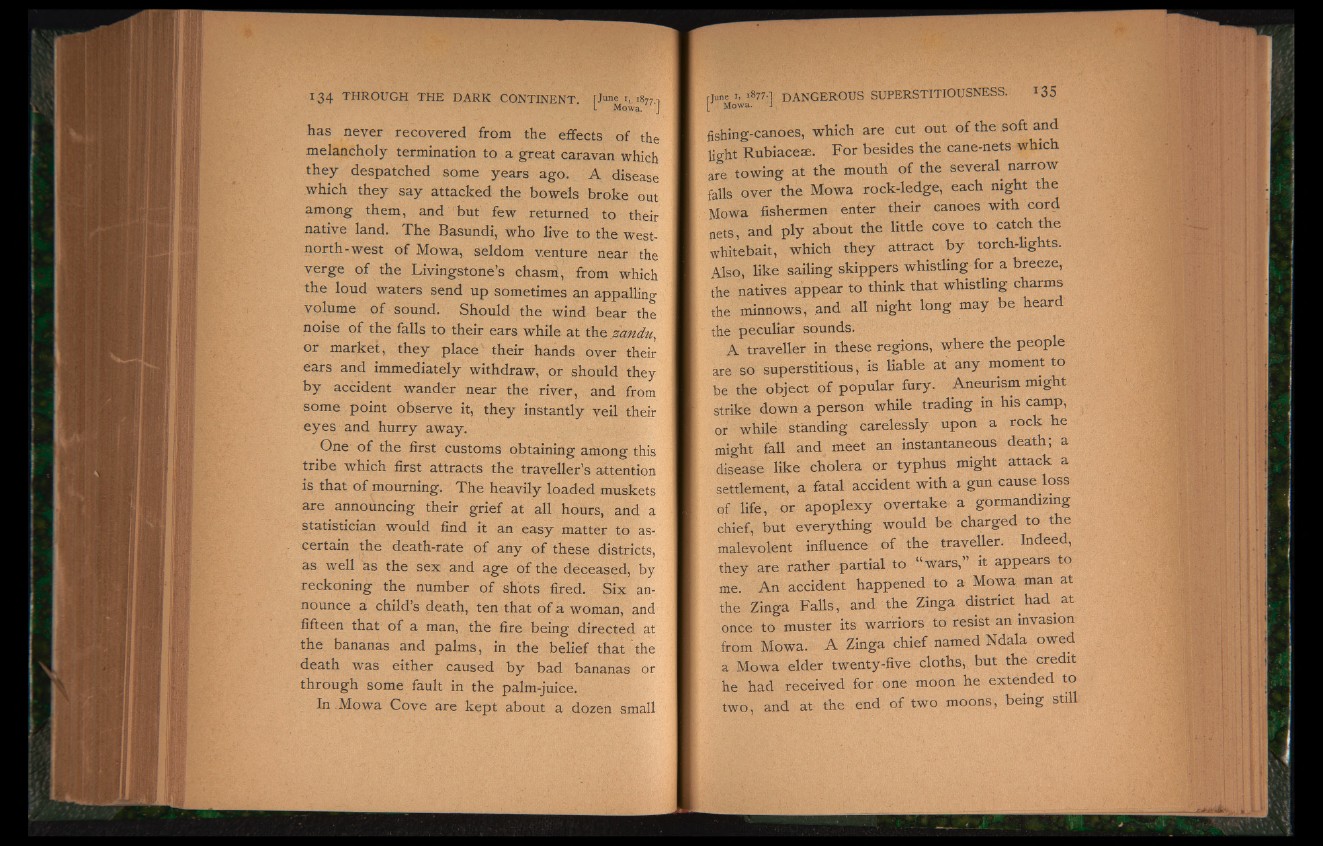
has never recovered from the effects of the
melancholy termination to a great caravan which
they despatched some years ago. A disease
which they say attacked the bowels broke out
among them, and but few returned to their
native land. The Basundi, who live to the west-
north-west of Mowa, seldom venture near the
verge of the Livingstone’s chasm, from which
the loud waters send up sometimes an appalling
volume of sound. Should the wind bear the
noise of the falls to their ears while at the zandu,
or market, they place their hands over their
ears and immediately withdraw, or should they
by accident wander near the river, and from
some point observe it, they instantly veil their
eyes and hurry away.
One of the first customs obtaining among this
tribe which first attracts the traveller’s attention
is that of mourning. The heavily loaded muskets
are announcing their grief at all hours, and a
statistician would find it an easy matter to ascertain
the death-rate of any of these districts,
as well as the sex and age of the deceased, by
reckoning the number of shots fired. Six announce
a child’s death, ten that of a woman, and
fifteen that of a man, the fire being directed at
the bananas and palms, in the belief that the
death was either caused by bad bananas or
through some fault in the palm-juice.
In Mowa Cove are kept about a dozen small
rjune i, *877.] DANGEROUS SUPERSTITIOUSNESS. 13 5
[ Mowa. J
fishing-canoes, which are cut out of the soft and
light Rubiacese. For besides the cane-nets which
are towing at the mouth of the several^ narrow
falls over the Mowa rock-ledge, each night the
Mowa fishermen enter their canoes with cord
nets, and ply about the little cove to catch the
whitebait, which they attract by torch-lights.
Also, like sailing skippers whistling for a breeze,
the natives appear to think that whistling charms
the minnows, and all night long may be heard
the peculiar sounds.
A traveller in these regions/where the people
are so superstitious, is liable at any moment to
be the object of popular fury. Aneurism might
strike down a person while trading in his camp,
or while standing carelessly upon a rock he
might fall and meet an instantaneous death; a
disease like cholera or typhus might attack a
settlement, a fatal accident with a gun cause loss
of life, or apoplexy overtake a gormandizing
chief, but everything would be charged to the
malevolent influence of the traveller. Indeed,
they are rather partial to “wars,” it appears to
me. An accident happened to a Mowa man at
the Zinga Falls, and the Zinga district had at
once to muster its warriors to resist an invasion
from Mowa. A Zinga chief named Ndala owed
a Mowa elder twenty-five cloths, but the credit
he had received for one moon he extended to
two, and at the end, of two moons, being still